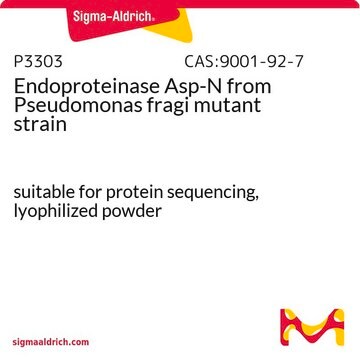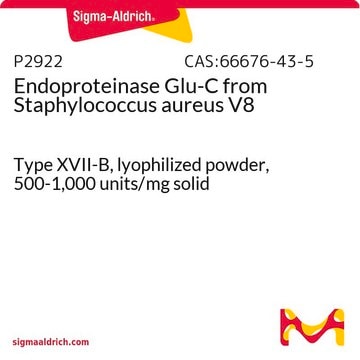C3142
α-Chymotrypsin from bovine pancreas
(TLCK treated to inactivate residual tryspin activity), Type VII, essentially salt-free, lyophilized powder, ≥40 units/mg protein
Synonym(s):
TLCK-Chymotrypsin
About This Item
Recommended Products
Quality Level
type
Type VII
form
essentially salt-free, lyophilized powder
specific activity
≥40 units/mg protein
mol wt
25 kDa
solubility
1 mM HCl: soluble 10 mg/mL, clear
UniProt accession no.
storage temp.
−20°C
Gene Information
cow ... CTRB1(618826)
Looking for similar products? Visit Product Comparison Guide
Application
Biochem/physiol Actions
Unit Definition
Preparation Note
Analysis Note
Other Notes
inhibitor
substrate
Signal Word
Danger
Hazard Statements
Precautionary Statements
Hazard Classifications
Acute Tox. 4 Oral - Aquatic Acute 1 - Eye Irrit. 2 - Resp. Sens. 1 - Skin Irrit. 2 - STOT SE 3
Target Organs
Respiratory system
Storage Class Code
11 - Combustible Solids
WGK
WGK 1
Personal Protective Equipment
Certificates of Analysis (COA)
Search for Certificates of Analysis (COA) by entering the products Lot/Batch Number. Lot and Batch Numbers can be found on a product’s label following the words ‘Lot’ or ‘Batch’.
Already Own This Product?
Find documentation for the products that you have recently purchased in the Document Library.
Customers Also Viewed
Our team of scientists has experience in all areas of research including Life Science, Material Science, Chemical Synthesis, Chromatography, Analytical and many others.
Contact Technical Service












